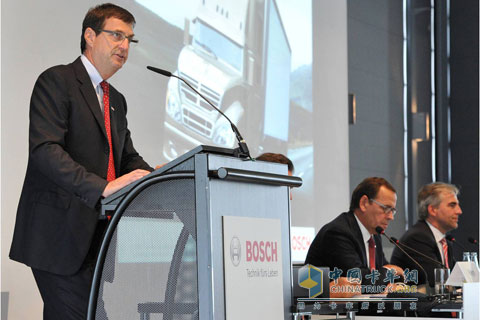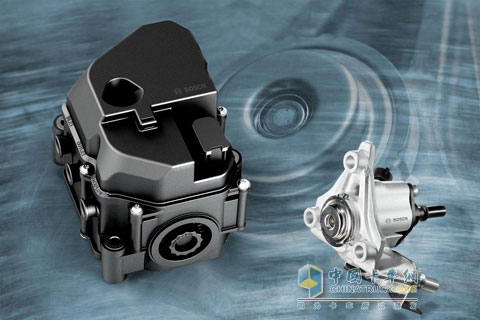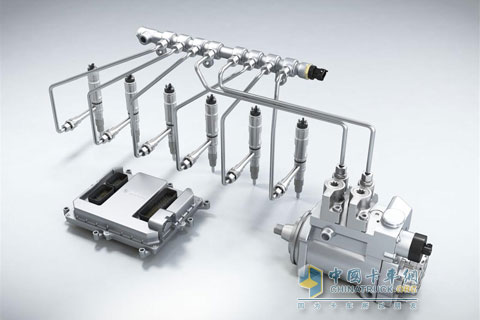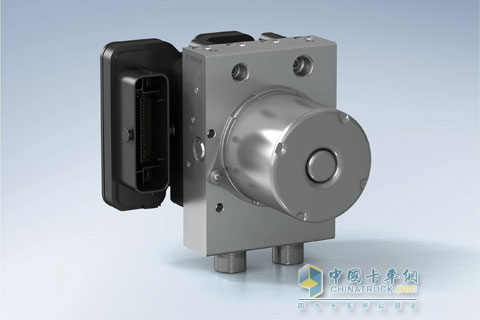At the recently opened Hannover Commercial Vehicles Industry Expo , Bosch brought its series of advanced technologies developed for commercial vehicles to promote economical and safe leading technologies to stand in Booth B10 of Booth 17. Dr. Bernd Bohr, chairman of Bosch Group's automotive technology business, said: “We hope that through a series of innovative technologies, the consumption of commercial vehicles will be reduced by 15% by 2020.†The commercial vehicle market needs to be more efficient, safer and more competitive Force solution. Dr. Bohr said that despite the turmoil in the global market, Bosch is full of confidence in its own development, especially the commercial vehicle business prospects of the company. “As logistics mileage increases, the expectations of commercial vehicle users for energy efficiency and environmental protection technologies are also increasing. Under the development trend, Bosch as a provider of innovative technologies, systems and services will usher in new opportunities for development with its advantageous position."

Dr. Bernd Bohr, Chairman of Bosch Group Automotive Technology Business
Every truck with Bosch technology can save 10,000 euros per year for logistics companies
As the industry's leading supplier of automotive technology and services, Bosch has made commercial vehicles more fuel efficient through innovation. "Although the current fuel efficiency of trucks is already 15% higher than that of cars, the market is still looking for more efficient technical solutions," said Dr. Bohr. Vehicle manufacturers and component suppliers still face challenges in further reducing fuel consumption and carbon dioxide emissions. Based on the current fuel prices and the average annual transportation mileage of 130,000 kilometers, logistics companies still expect to save an average of 10,000 euros in operating costs per truck per year.

Bosch Commercial Vehicle Exhaust Aftertreatment System
To achieve this goal, Bosch is committed to developing other innovative solutions while tapping the potential of existing technologies for fuel economy. Currently, Bosch is trying to further increase the injection pressure of the common rail system to 3,000 bar. By increasing the fuel injection pressure and using the Denoxtronic selective catalytic reduction system, Bosch technology can further reduce fuel consumption by 5%. With the popularity of these two technologies, in the next year, Bosch plans to achieve 2.5 million common rail systems and sales of more than 800,000 Denoxtronic systems in the commercial vehicle sector.
Bosch innovation seeks higher efficiency
At Bosch today, about 60 engineers are developing hybrid drive technology for commercial vehicles of more than 12 tons. Bosch hopes to reduce the fuel consumption of long-distance commercial vehicles by 6% through parallel hybrid technology, and achieve a 20% fuel savings in short-distance driving. Bosch plans to launch a commercial vehicle hybrid power system between 2015 and 2020. The additional costs for the logistics company can be recovered within three years.

Bosch Commercial Vehicle Diesel Common Rail System
Continuously strengthening the links between vehicle systems is also one of Bosch's innovation trends, such as the new “Eco-Path†system. The system is based on navigation data to develop an efficient driving strategy, engine management and transmission control, so that the vehicle acceleration in time before the uphill, and avoid unnecessary shifts, thereby reducing fuel consumption by 3%. In the future, Bosch will also apply topographic navigation data to hybrid drive systems to achieve optimal energy management. For example, the system can use the stored energy for additional power required for uphill slopes and the excess energy on downhill slopes. Used for battery charging.
Germany offers rewards for trucks that meet Euro VI standards in advance
"Improving the environmental performance of vehicles is also economically important for fleet operators," said Dr. Bohr. Prior to the official implementation of the Euro VI standards in 2014, Germany will implement tax credits for trucks that meet this standard in advance. Calculated on an average annual mileage of 130,000 kilometers, each Euro VI truck can save an additional 6,500 euros in tolls compared to Euro III trucks. To help users meet this standard, Bosch has begun to provide technical solutions to commercial vehicle manufacturers so that the nitrogen oxide catalytic converter can work with or without exhaust gas recirculation.

Bosch's 9th Generation ESP Electronic Stability Program for Light Commercial Vehicles
More trucks need to install anti-skid and emergency braking systems
As environmental standards continue to increase, the legal requirements for accident prevention have also become more stringent. By the end of 2014, almost all new cars produced in Europe will have the ESP® electronic stability program mandatory. This process was first introduced by Bosch. For the anti-slip system, although the average installed proportion of newly-manufactured cars in Europe has reached 70%, the proportion in trucks is only 60%. The new-generation commercial vehicle ESP® electronic stabilization program can help trucks fill this gap. It can also be installed on other light commercial vehicles with large brake systems and high brake pressures.
By the end of 2014, more than 3.5 tons of trucks in Europe will also be forced to install driver assistance systems such as automatic emergency braking systems. To achieve this goal, Bosch R & D products include a radar sensor, especially for medium-distance operation vehicles including trucks and trucks, even if the speed of 150 km / h can still play an auxiliary role. In addition to the emergency braking function, the new radar sensor can also implement a series of functions, such as ACC adaptive cruise control, which helps reduce the burden on truck drivers and makes driving safer.
EPS Sandwich Wall Panel,Sandwich Panel,Cement Sandwich Panel
Sanlian Machinery Manufacture Co., Ltd. , http://www.chinabrickmachinery.com